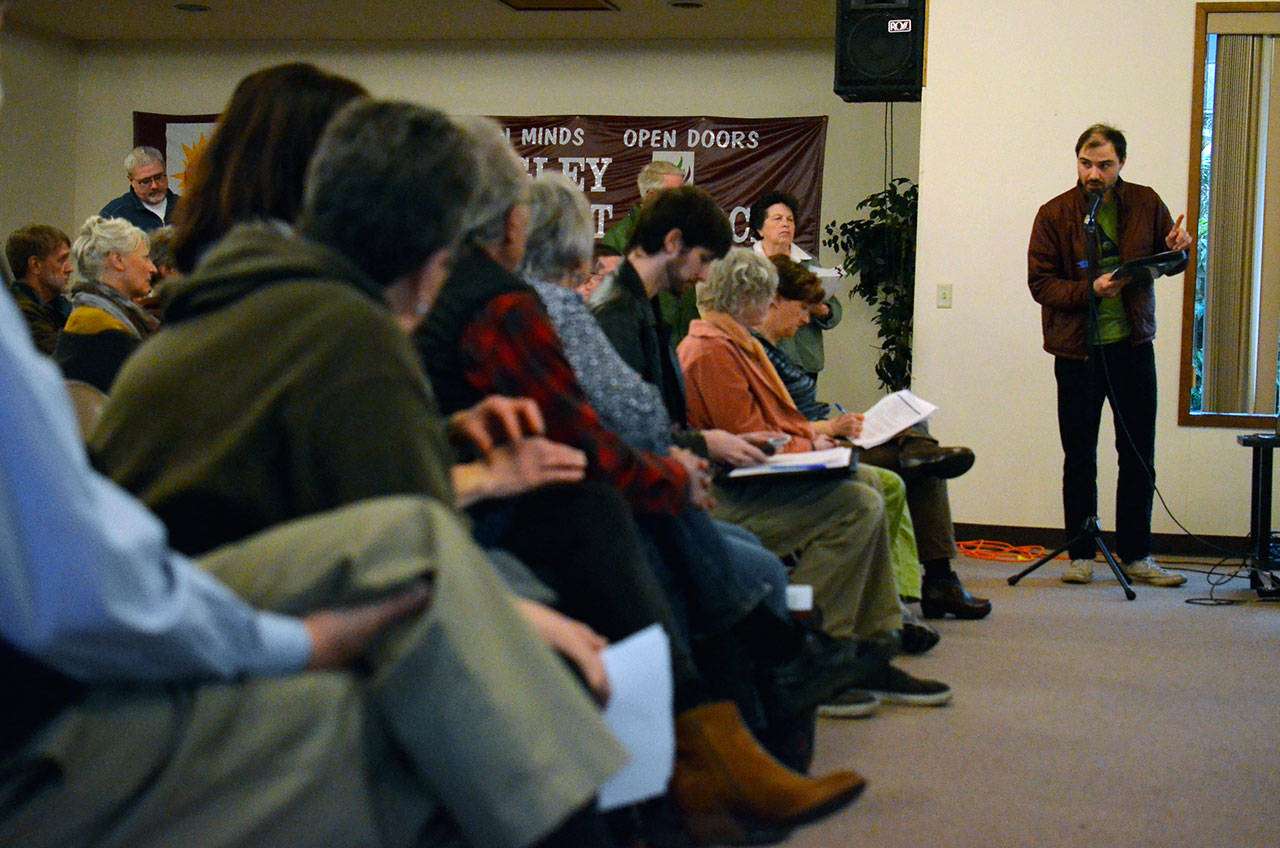Langley is now an inclusive city by resolution, and may later become a sanctuary city by code.
The city council approved Monday a non-binding resolution declaring the Village by the Sea as an “inclusive city with respect to immigrants and refugees and peoples of all religions, race and ethnic background, gender and sexual preference.” Among the 18 clauses, the resolution states police will continue a policy of not inquiring about a person’s immigration status or religion, that city services and benefits are not contingent on a person’s immigration status, and that the city will support freedom of religion irrespective of mandates for information by the federal government.
The council also agreed to keep a sanctuary city ordinance proposal alive, deciding to forward sample language to the city attorney for review. Oath of office violations remain a concern of officials at city hall — primarily the mayor, clerk and police officers — so the attorney will weed the draft of offending language. He was also tasked with making it consistent with existing and potentially conflicting city code, rules that require adherence to federal law, and whether there are any conflicts with the police guild’s contract. Finally, the city council was also asked for clarification concerning enforcement and potential penalties for city workers who don’t comply with the ordinance.
A resolution is different from an ordinance in that the former is non-binding and the latter carries the force of law.
Monday was the council’s regularly scheduled meeting but it was held at the Langley United Methodist Church in anticipation of a large crowd. More than 100 attended, and both decisions followed about one hour and 20 minutes of public comment.
People spoke to both to the resolution and ordinance.
Langley resident Mike Huggins said he spent most of his 35-year career in policy making and compliance. He voiced concern and urged caution moving forward, saying, “The devil is always in the details.”
“If you want to be a sanctuary city, go ahead and be a sanctuary city,” he added. “Just do it without a resolution because sometimes these things can come back to bite you.”
Rufus Rose, a Clinton resident, said he was against both the resolution and an ordinance. Adopting either would “affect all of South Whidbey and, in fact, all of Island County to some degree,” he said.
“Sanctuaries are wonderful, I think they should be in places like this — churches, not in government,” Rose said.
Langley resident Sharon Berlin said she was strongly in favor of the draft ordinance, and urged city council members and residents to support their convictions.
“I think this is a time for people to take a stand and show courage,” she said.
Langley has undocumented residents right now, and Langley should show them special care and compassion, she said. Berlin also disagreed with the premise that passing an ordinance would result in a flood of immigrants or refugees, and that they would require heavy public support.
John Graham, a Langley resident, said fears about breaking oaths of offices, floods of immigrants, and retaliation from the federal government don’t hold water. He also argued for an ordinance rather than a resolution due to its non-binding nature.
“It’s kind of like proposing marriage without the ring,” he said.
Both the resolution and a motion to continue considering an ordinance were approved in separate but unanimous 5-0 votes. Before agreeing to the latter, however, several council members made personal statements about the effect the divisive issue has had on them, particularly when it comes to impassioned members of the public.
“It’s been really difficult having people tell us, ‘Nobody is against this,’” Councilwoman Ursula Shoudy said. “I hate to be the bearer of bad news because I haven’t discussed what my feelings are, and my feelings are very mixed.”
She said it’s her job to listen to constituents, but that she was also voted in as a city resident and has her own opinions.
Councilman Bruce Allen addressed what he described as a “horrible, horrible” and “cowardly and unsigned” letter left for him at city hall. He didn’t reveal the contents, but said he didn’t appreciate finding it in his in-box.
“To me that’s a terribly rude, insensitive way to deal with things,” he said.
Councilwoman Rene Neff emphasized this is a very “hot” topic and that council members have received anonymous letters full of “hate.” She appealed for patience and understanding.
“I think it’s really important for people to realize the decisions people are making up here are very difficult for all of us, and we’re all wrestling with them to the very best of our knowledge and ability,” she said. “We’re taking it very, very seriously.”



